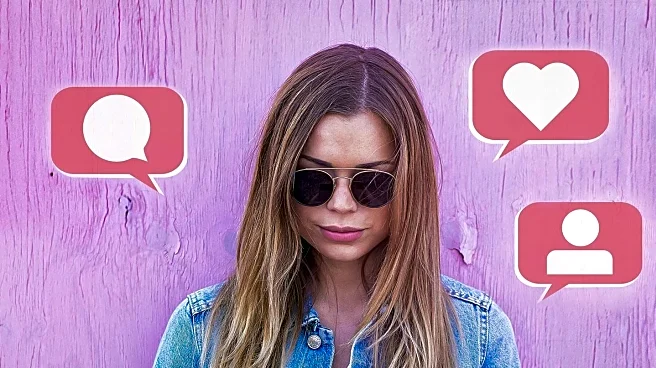What's Happening?
A study led by the University of Sydney examined around 1,000 Instagram and TikTok posts promoting various medical tests, reaching approximately 200 million followers. These posts, often shared by influencers, highlight tests such as full-body MRIs and genetic
tests for early cancer detection. The wellness industry, valued at trillions, encompasses mental wellness, healthy eating, physical activity, and more. Influencers, ranging from medical professionals to those with little or no medical training, promote wellness products and rituals, sometimes without scientific backing. This trend is fueled by a decline in trust in institutionalized expertise, exacerbated by the COVID-19 pandemic. Many Americans face barriers to accessing primary care, leading them to seek health advice from social media influencers.
Why It's Important?
The influence of wellness influencers on public health advice is significant, as they often provide information that may not be scientifically validated. This can lead to misinformation, impacting individuals' health decisions and potentially causing harm. The wellness industry, driven by influencers, affects public trust in traditional healthcare systems, as people increasingly turn to social media for health advice. This shift poses challenges for healthcare professionals who strive to provide evidence-based information. The reliance on influencers for health advice highlights the need for improved access to trusted healthcare providers and accurate health information.
What's Next?
The growing influence of wellness influencers may prompt regulatory bodies to enforce stricter guidelines on health-related content shared online. Social media platforms might enhance their policies to combat misinformation, ensuring that users receive accurate health information. Healthcare professionals may increasingly engage with social media to provide credible health advice, countering misinformation. The wellness industry could face scrutiny regarding the promotion of unverified health products and practices. As public trust in traditional healthcare systems continues to decline, efforts to improve access to primary care and rebuild trust in medical institutions may become a priority.
Beyond the Headlines
The ethical implications of wellness influencers promoting unverified health advice are profound, as they can exploit vulnerable individuals seeking health solutions. The cultural shift towards self-managed health care, driven by influencers, reflects broader societal changes in how people perceive and access health information. This trend may lead to long-term shifts in public health policy, emphasizing digital literacy and critical evaluation of online health content. The role of influencers in shaping health narratives underscores the need for transparency and accountability in the wellness industry.















